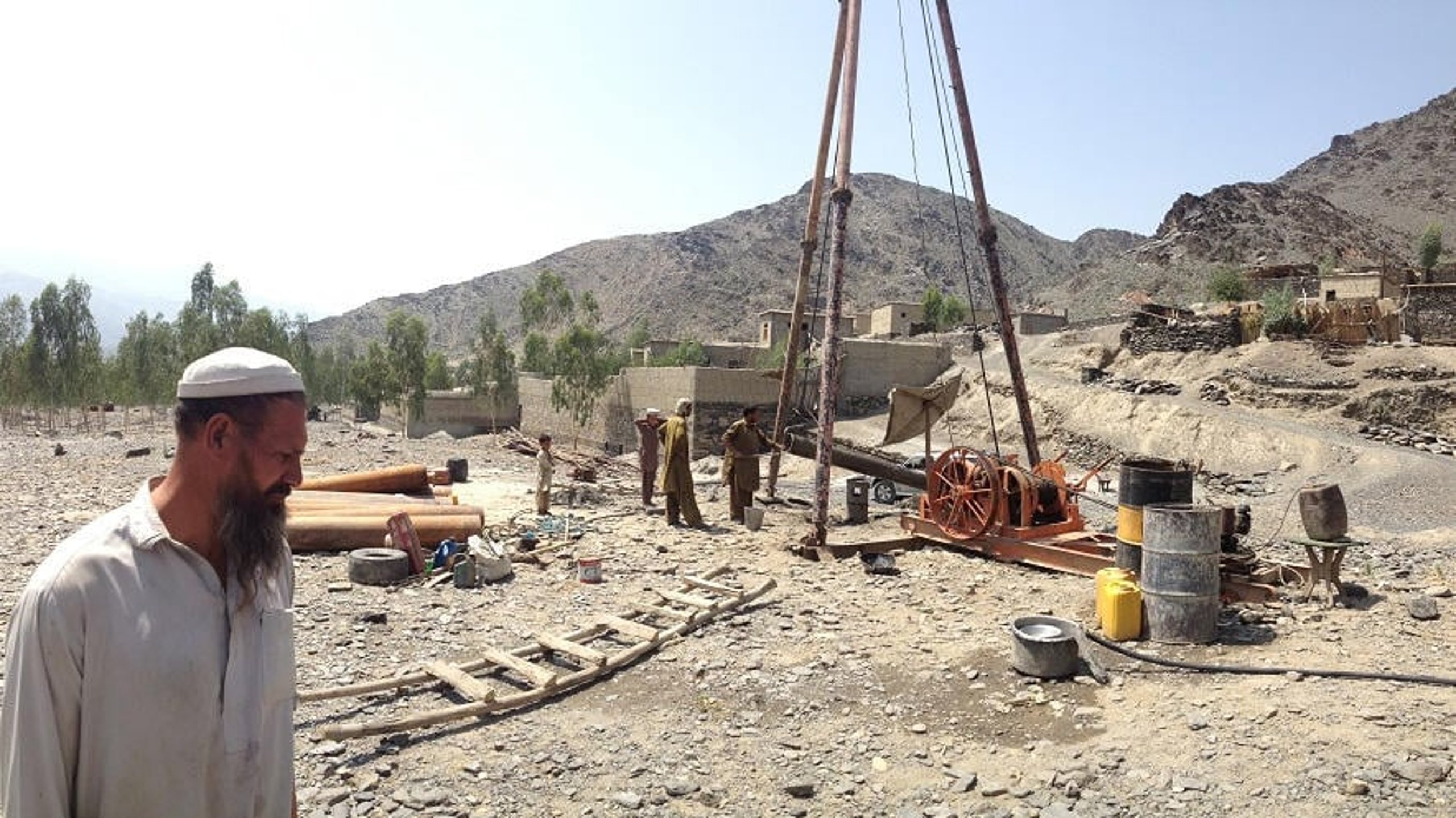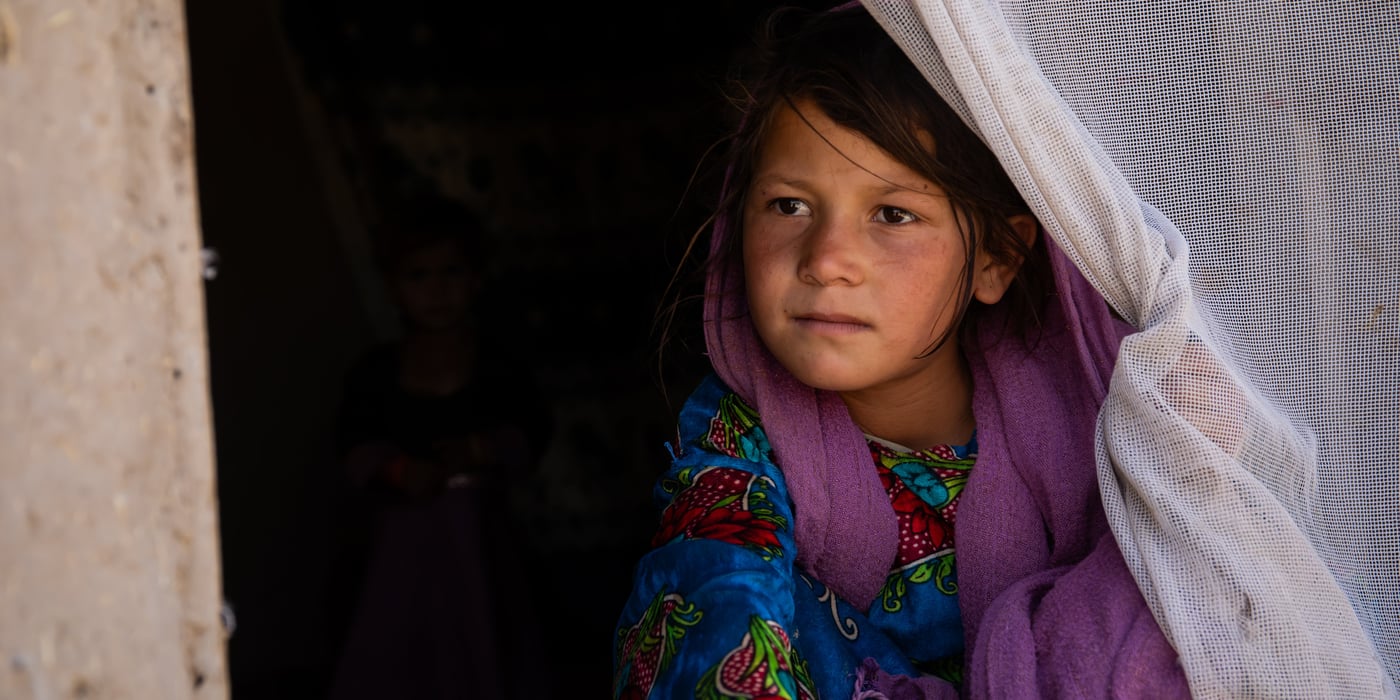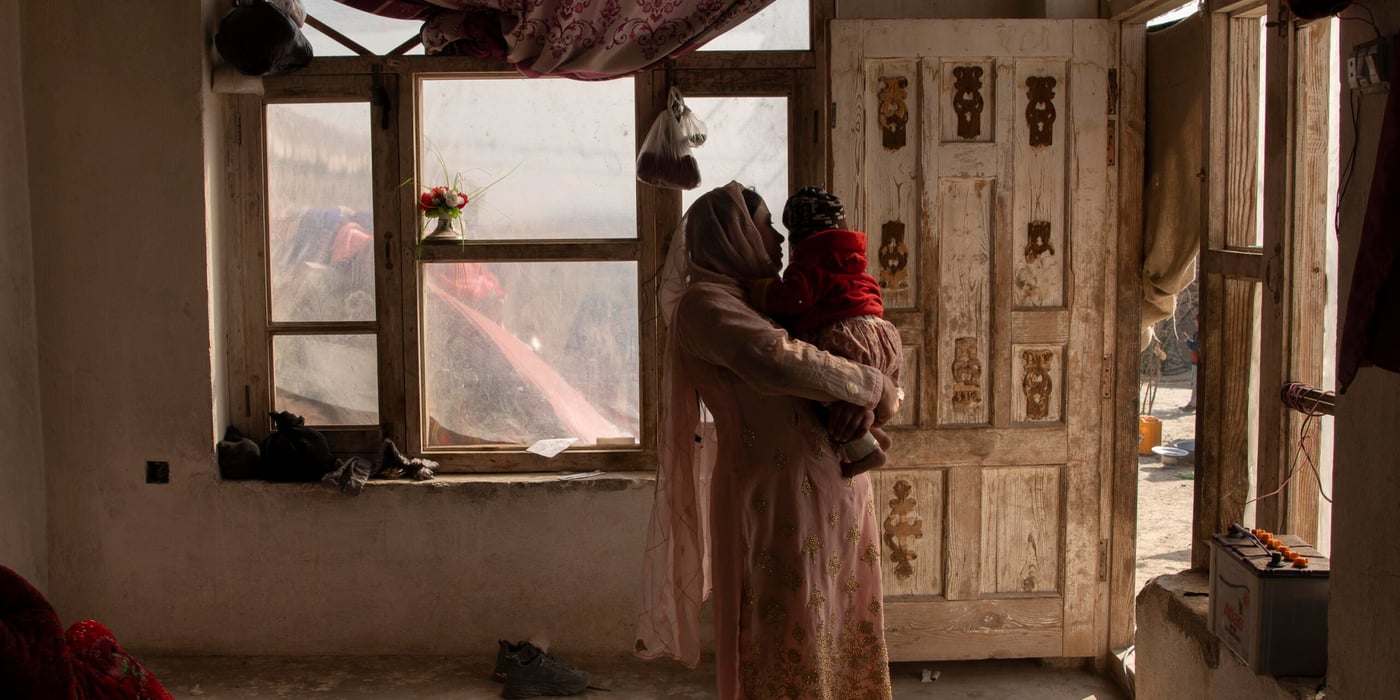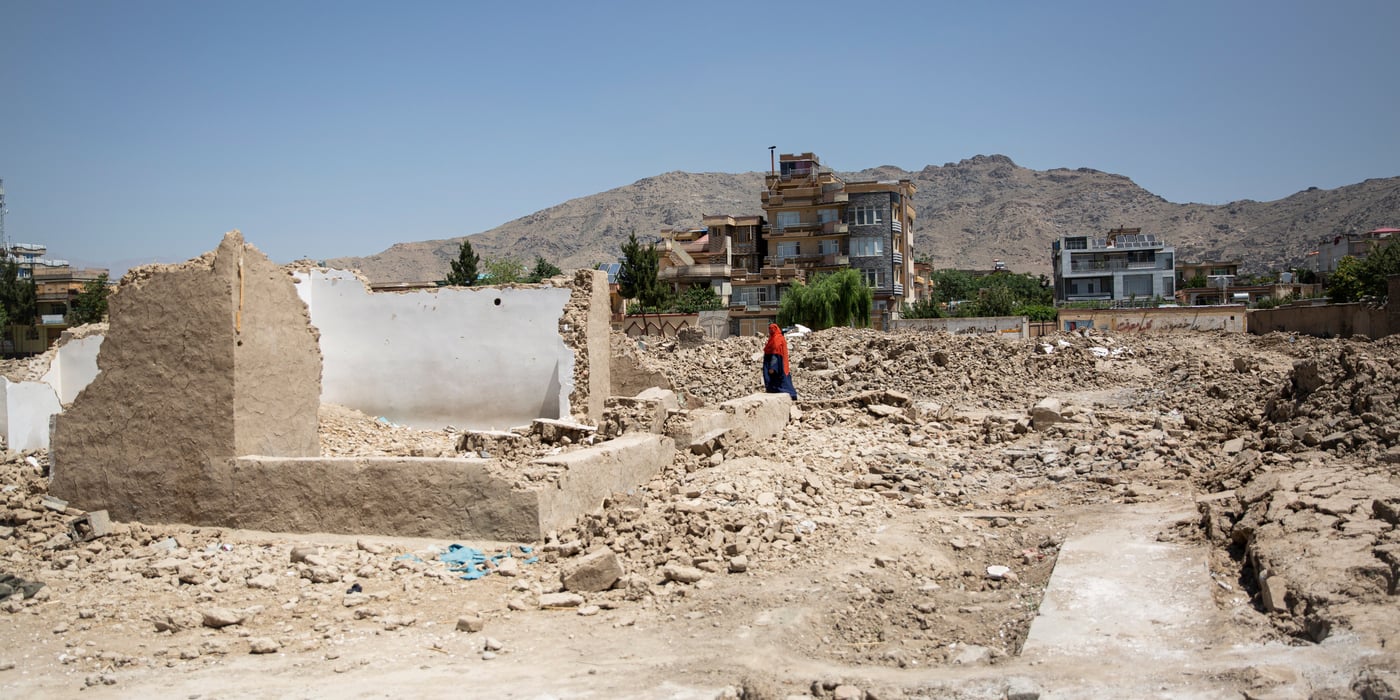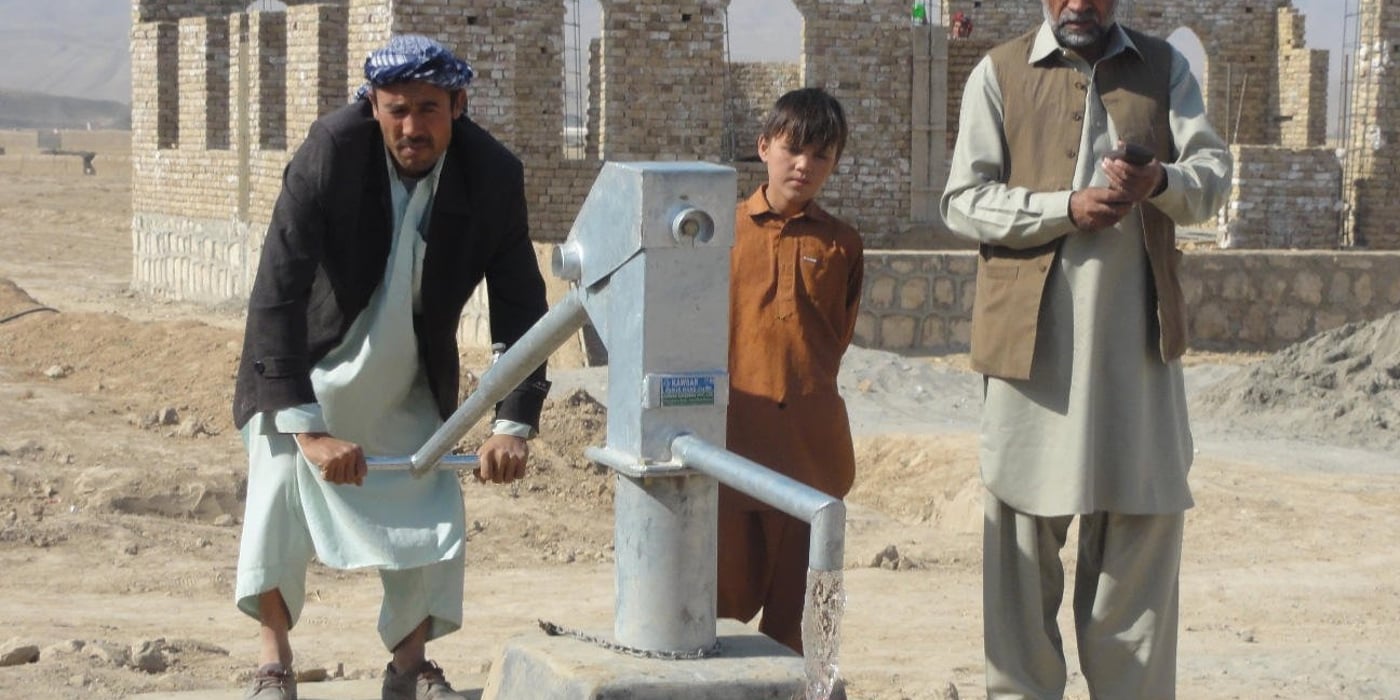
Since 2002, more than 5.7 million refugees have returned to Afghanistan from Iran and Pakistan. Refugee return has placed huge strain on vulnerable receiving communities, increasing hardship as shared resources – especially when they are limited – can heighten tensions between refugee-returnee families and the host communities. This situation is commonly exasperated by powerful or established families who maintain control over access to clean water, often forcing the most vulnerable to obtain water from unsanitary sources. In Afghanistan, open water sources such as rivers present a significant health hazard from water borne diseases, especially in hot and windy climate conditions. Furthermore, in rural communities, it is most often women and small children who are required to collect water walking long distances on foot, exposing them to additional protection risks.
In 2013, the NRC supported new returnees and ‘Internally Displaced Persons’ (IDPs) to construct shelters in rural Kunduz Province, where returnees and IDPs could secure land to build homes. After a short period, a new settlement was effectively established. Without further assistance, however, potable (clean) water would have remained a major issue as the only supply was from a nearby river, approximately one kilometer from the settlement. Therefore, through Norwegian Broadcasting Telethon funding, NRC constructed 24 wells in this settlement and other villages in high return areas of Kunduz and Nangarhar provinces in Northern and Eastern Afghanistan, where needs were assessed as high. In total, approximately 600 families were assisted through this project. Each village selected was provided with a deep bore well cased with a hand pump.
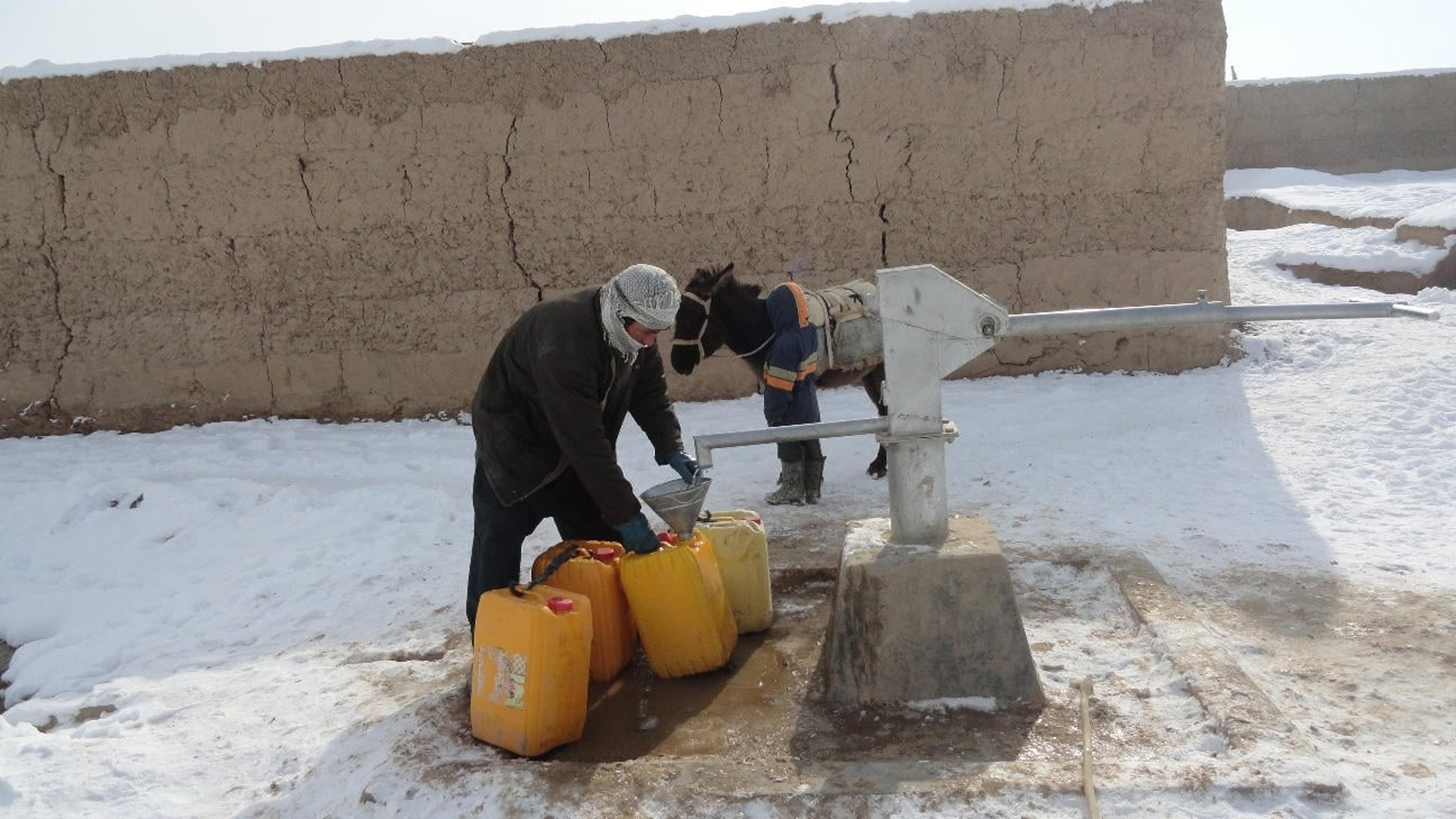
“[before] I had to carry water from the river which is far away down the road every day, and took a lot of my time and was really tiring. When I was not available, my mother or sister had to do it until NRC constructed the bore well inside our village. Since then we can easily have clean water almost every moment and I do not have to spend a lot of time to carry water. I feel much happier now.”
